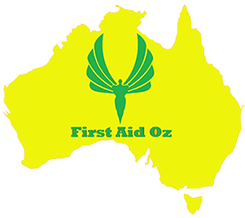Concussion Cause and effects
A concussion is a type of traumatic brain injury (TBI) that occurs when the brain is shaken inside the skull, often as a result of a blow to the head or body. The effects of a concussion can vary widely depending on the severity and location of the injury, as well as the individual’s age and overall health. Some of the common causes and effects of concussion include:
Causes of concussion:
- Direct blow to the head (such as from a fall or being hit with an object)
- Whiplash or other types of rapid movement that cause the brain to jolt within the skull
- Explosions or other blasts that create a shockwave that travels through the skull and impacts the brain
- Sports-related injuries, especially in contact sports like football, boxing, or hockey
Effects of concussion:
- Headaches and migraines
- Dizziness and balance problems
- Confusion and memory loss
- Sensitivity to light and sound
- Nausea and vomiting
- Difficulty concentrating or thinking clearly
- Irritability and mood swings
- Sleep disturbances
- Increased risk of depression and anxiety
- Post-concussion syndrome, which can cause symptoms to persist for weeks or even months after the initial injury
In severe cases, a concussion can lead to more serious complications, such as bleeding in the brain, seizures, or even death.
Treatment for concussion
It is important to seek medical attention if you suspect you or someone else may have a concussion, especially if symptoms are severe or last longer than a few days.
In the meantime, you can provide first aid by following these steps:
- Remove the person from any potential danger or hazardous situation.
- Assess the person’s level of consciousness by asking simple questions, such as their name, the date, and where they are. If the person is unconscious, call for emergency medical assistance immediately.
- Apply a cold compress to the person’s head to reduce swelling and pain. Use a cold pack wrapped in a towel or a bag of ice.
- Keep the person still and limit their movement, especially their head and neck, until medical assistance arrives. If the person needs to be moved, do so slowly and with support to avoid any further injury.
- Monitor the person for any changes in their condition, such as vomiting, severe headache, dizziness, or confusion.
- Advise the person to rest and avoid any activities that could potentially cause another head injury, such as contact sports, until they have been evaluated by a medical professional.
Remember, a concussion is a serious injury that requires prompt medical attention. Be sure to seek medical assistance if you suspect someone has a concussion, and follow any advice or instructions provided by healthcare professionals.
Photo by National Cancer Institute on Unsplash

